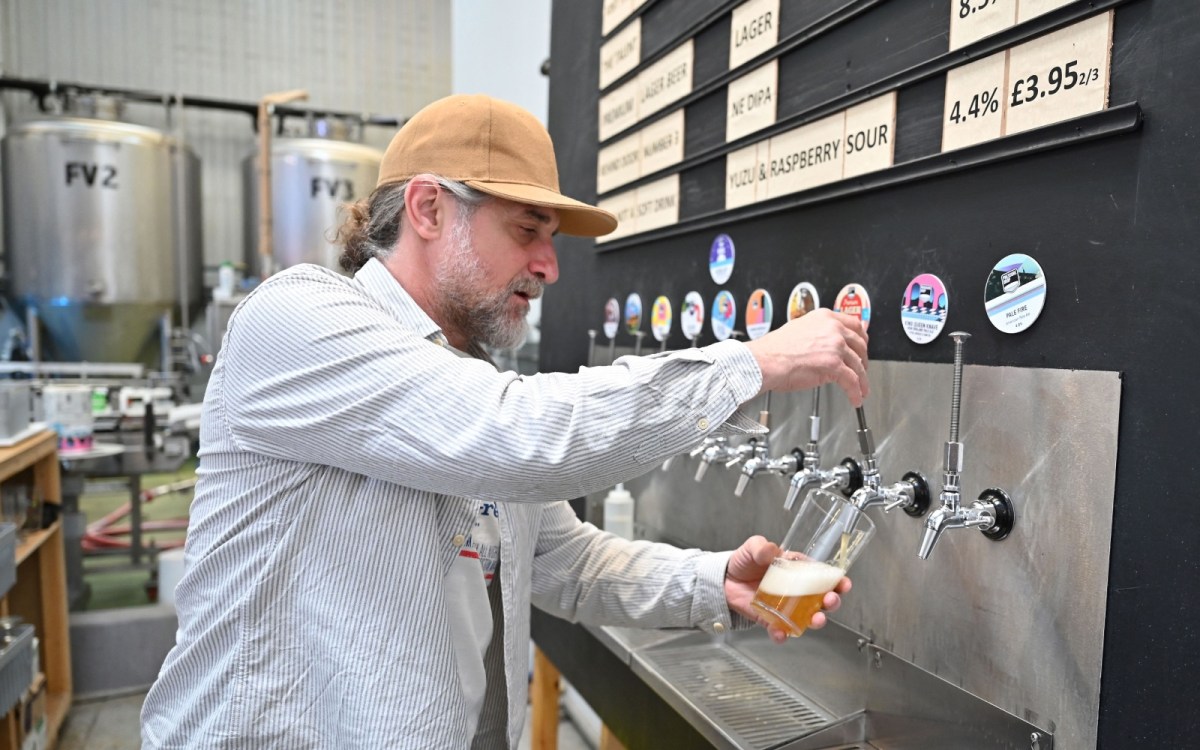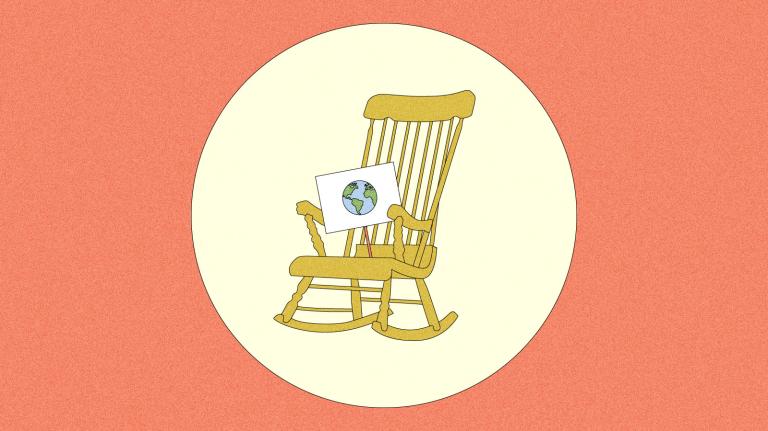
The vision
Your wife comes downstairs just as you finish packing her lunch box — an extra indulgent one. She’s been pulling more shifts at the hospital while one of the other doctors is on leave. Meanwhile, since the public schools adopted the four-day week, you won’t be going in to teach today.
It’s Field Trip Friday for your two young sons. They’re going to volunteer at the aquarium. Once you kiss her goodbye, you’ll cook their breakfast and walk them to the bus stop. And then … bike to the grocery store? Read? Maybe you’ll finally install the new heat pump …
— a drabble by Claire Elise Thompson
The spotlight
The idea of a four-day workweek is gaining traction. In recent years, it’s been trialed by small, mission-driven organizations as well as some larger, well-known companies like Basecamp and Panasonic. There’s even a bill in Congress about it.
“I very distinctly remember the conversation in which our executive director looked at me and said, ‘I’d love to move us toward a four-day workweek,” says Shanti Mathew, managing director at the Brooklyn nonprofit Public Policy Lab. “I was like, ‘Yeah, who wouldn’t want that? Let’s go!’” That conversation began years ago — and after some experimentation, Public Policy Lab participated in a six-month trial last spring and summer coordinated by the organization 4 Day Week Global.
At the end of the pilot, Mathew and her team elected to keep their 32-hour model, with eight hours of flexible time each week that employees can take whenever and however they choose. “Work should serve people’s well-being and people’s lives,” she says. “Not the other way around.”
A recent U.K. trial, billed as the largest to date, with 61 companies and about 2,900 workers — also run by 4 Day Week Global — found that 70 percent of workers reported a reduction in burnout by the end of the six-month trial, and 40 percent experienced improvements in their sleep. An overwhelming majority of the companies opted to continue with the shorter workweek after the trial ended.
It makes sense that a reduction in work time would help with things like stress, fatigue, and job satisfaction. But the research revealed another, less-reported benefit that may come as a surprise: The four-day workweek also shows potential for the well-being of the planet.
Juliet Schor, an economist and sociology professor at Boston College who led the trials, has studied the relationship between climate change and work for about 40 years. “I have a series of papers that show carbon emissions and working hours tend to be pretty strongly positively correlated,” she says.
So many climate and sustainability solutions are viewed culturally as sacrifices — eating less meat, taking fewer flights, using less energy. But in some cases, less can actually be desirable. The four-day workweek, while it still needs more research to to understand the full climate implications, may be one of those examples.
Benefits in the here and now
One clear climate benefit seen in the trials: commute time. Across the full sample, which now includes four trials in different parts of the world, commute time has fallen by about a half hour per week.
In the first two trials, which included companies from Ireland, the U.S., and Canada, Schor notes that participants reported fewer car commutes even when they were still going into the office. That finding aligns with a hypothesis she put forward years ago — that more free-time begets more earth-friendly choices. “So if you have a less rushed lifestyle, you might ride your bike or take public transportation to work instead of driving,” she says.
More leisure time could, in theory, lead to more carbon-intensive activities like weekend jet-setting. “The biggest number of companies in the first trial was from Ireland, and there are a lot of cheap flights from Ireland to the continent,” Schor says. But the study queried workers about travel and found little change. Instead, people spent more of their free time on things like housework and personal grooming.
Harry Madeley, an employee at the ecological consultancy Tyler Grange in Cirencester, England, says that he and many of his coworkers have enjoyed using their Fridays to volunteer, which the company encourages. Madeley regularly works at a charity that offers farming experiences for children from underprivileged backgrounds. He says having that extra day off makes service work much more possible for people who want to do it: “It’s not infringing on the weekend and maybe my family time or existing commitments.” (Although, he adds, he doesn’t necessarily feel pressure to do something productive on his Fridays off. Sometimes the value is having a day just for rest, or binge-watching Netflix.)
One thing the trials haven’t been able to gather data on is energy use — whether companies in fact use less energy by shutting down for a day, and whether employees potentially consume more energy in their homes while they’re not at work. “That’s a level of detail that, in the end, we haven’t really been able to get a handle on,” Schor says, adding that the team hopes to collect more data in future studies.
Possibilities for the future of work
Schor believes the four-day workweek can be a stepping stone to overall degrowth. This approach, advocated by some in the climate movement, involves the deliberate shrinking of economies in the developed world in the interest of consuming fewer resources, and prioritizing human well-being and ecological sustainability over profits.
“If we really are serious about an emissions trajectory that prevents the planet from turning into hothouse earth, then I think work-time reduction in Global North countries absolutely has to be key,” says Schor.
There are caveats, however. “Sustainable outcomes can only be achieved if we reduce both production and consumption,” says Tommy Wiedmann*, a degrowth advocate and professor of sustainability research at the University of New South Wales in Sydney, Australia. He notes that all of the four-day week trials to date have come without reduced pay. “That means that we will still be consuming at the same level, which really means overconsuming in rich countries.”
Wiedmann and other proponents argue for reducing incomes while simultaneously reducing the cost of living by investing more public resources into health care, education, transportation, and housing. This approach would also require a shift in cultural standards. But, he points out, while material wealth has steadily increased in countries like the U.S., U.K., and Australia, it hasn’t tended to make us happier.
In fact, four-day week trials (along with trends like quiet quitting and bare-minimum Mondays) may offer a valuable lesson about workers’ happiness. In the U.K. pilot study, 15 percent of employees said that no amount of money could convince them to go back to a five-day work schedule.
For Madeley at least, the experience of regaining time for himself each week has changed his relationship to money goals. Although he’s sensitive to the fact that the four-day week is still a rare privilege, he said that he would recommend part-time work, where economically feasible, to friends and family who are struggling with burnout. “People are focused on chasing money,” he says. “But you realize, when you have more time, it’s not all about money. It’s about the time you have, what you choose to do with that — how grateful you are for this big piece of your week back, to invest into whatever you want to do.”
— Claire Elise Thompson
*Correction: An earlier version of this post misspelled Tommy Wiedmann’s last name.
More exposure
- Read: more about the practicalities of a four-day workweek (BBC)
- Read: more about the climate benefits of working less (Washington Post)
- Read: more about degrowth (Nature) and arguments for and against it (NYT)
- Listen: to a podcast about the U.K. 4 Day Week trial, including the experience at Tyler Grange (The Guardian)
See for yourself
Imagine if you had a three-day weekend every week. What would you do with it? Volunteer? Start a compost pile? Learn how to roller skate? Reply to this email to tell us about one action, hobby, or lifestyle choice — green or not green — that you would love to pick up if you suddenly had eight extra hours to yourself.
On our horizon
A few things in the Grist universe that we’re excited to share:
- This week, we launched the trailer for the third season of our Temperature Check podcast. Give it a listen, and look out for the coming episodes — which tell the stories of pivot points in people’s climate journeys.
- The Grist Indigenous affairs team is nearing the end of an impactful series on The Human Cost of Conservation, exploring the sometimes devastating impacts that “protected areas” can have on Indigenous communities. We’re also hosting a live event this evening in New York (and online) to discuss themes from the series and what leaders can do to protect both biodiversity and human rights.
- If you don’t already subscribe to our Beacon newsletter, check that out here! We updated the format recently — subscribe to get a weekly dose of good climate news curated by solutions writer Gabriela Aoun Angueira (who has also contributed to Looking Forward!).
A parting shot
Although the four-day workweek has thus far been most popular in white-collar sectors, it’s possible in the service and retail industries as well. Another company that participated in the U.K. trial is Pressure Drop Brewery in London, pictured here.




